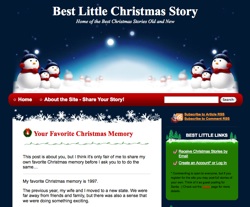
My best writing makes me feel like this!
A few years back I changed dentists. Everything started out just fine. I settled into the chair and stared at the ceiling. I noodled through the logistical difficulties of installing television screens between the tiles. It was pretty normal. Boring.
Then the hygienist came in and asked me about my goals for my teeth.
“Goals?”
“Yes… What are your goals for your teeth?”
And despite the fact that this very serious lady was about to put very sharp and pointy instruments into my mouth, my writer’s brain kicked in before I could stop it.
“Well, unlike my children, when they grow up I’d appreciate it if they didn’t move out on their own.”
[Cue the blank stare from the hygienist…]But it was such an open ended question! What could I do? I suppose I ought to wear a button that says WARNING: WRITER! DO NOT GIVE HIM AN OPENING! It’s only fair to warn people in advance, right?
On Twitter, I don’t have to warn anyone in advance about being a writer. My handle there is hownottowrite. It’s pretty obvious what I’m going to go on about. So, yesterday I posed a question to my tweeps:
“My best writing makes me feel ____.”
I started doing this Twitter thing hardcore about a year ago. I tweet about all sorts of things: what’s going on in my personal world, hanging out with my family, taking pictures of whatever carbtastic thing I’m about to consume… But generally, I focus on writing and the writing life.
I also like to toss out questions and hear what other writers have to say. To me, that’s what Twitter is all about — connecting with people and having fun.
And how does my best writing make me feel?
My best writing makes me feel as if I’ve tapped into something much larger than myself. In fact, it makes me feel like a conduit into another world as opposed to any sort of editor or creator. The world flows through me and I am infinitely grateful for the experience.
Please enjoy the wonderful responses below. Visit these great writers! When you’re done, take a moment to leave a comment and add your voice to the chorus!
- rsdevin “My best writing makes me feel like I have tangible worth. That I’m good at something, and have a role to play in the cosmos”
- RhodesTer “..like acting out the story in real life, only without real weapons because I wouldn’t want to hurt anyone.”
- ronenk “…makes me feel I know hownottowrite” 🙂 eheh
- clairethomey …makes me feel like a literary rock star!
- litrock … makes me feel like a fantastic human being. A link to the greater good, a living conduit between past and future.
- onezenmom I’d have to say the best way to end that sentence is with a period.
- sherice ___ like I’ve unleashed a flood of knowledge to a hungry world 🙂
- klavaute My best writing makes me feel more alive, like a slightly better version of myself emerged.
- Joi_the_Artist My best writing makes me feel like I could conquer the world!
- writegud hungry for more
- CuriosityCoach “My
best writing makes me feel _____.” (Hi Jamie!) paradoxically calm & connected at core, amidst electrified energy of self. - SpaceAgeSage My best writing makes me feel like the words flow from a place that is wiser, better, and more creative than my own ego.
- Tekaran_Lady My best writing makes me feel productive and useful, like my years studying English literature in college weren’t wasted.
- DeborahWoehr “My best writing makes me feel empowered.”
- stancymckatt My best writing makes me feel happy. and creative. It makes me feel like I want to write more, and more.
- jaymi_elford “my best writing makes me feel… alive.”
- dani29 “my best writing makes me feel _awesome_!” i feel smart, sophisticated and talented when i write something i *know* is good!
- uppington grounded, centered, completely present, fully alive, and doing what I’m meant to be doing.
- jhtatroe My best writing makes me feel like someone else must have written it.
- Jenn_Thorson “Elated” because it means I really did have one more post in me! 🙂
- LizScherer like I’m floating on air.
p.s. Everything turned out fine at the dentist. We laughed, we cried, we filled a cavity. 🙂
Your turn! Go for it! “My best writing makes me feel ____.”

